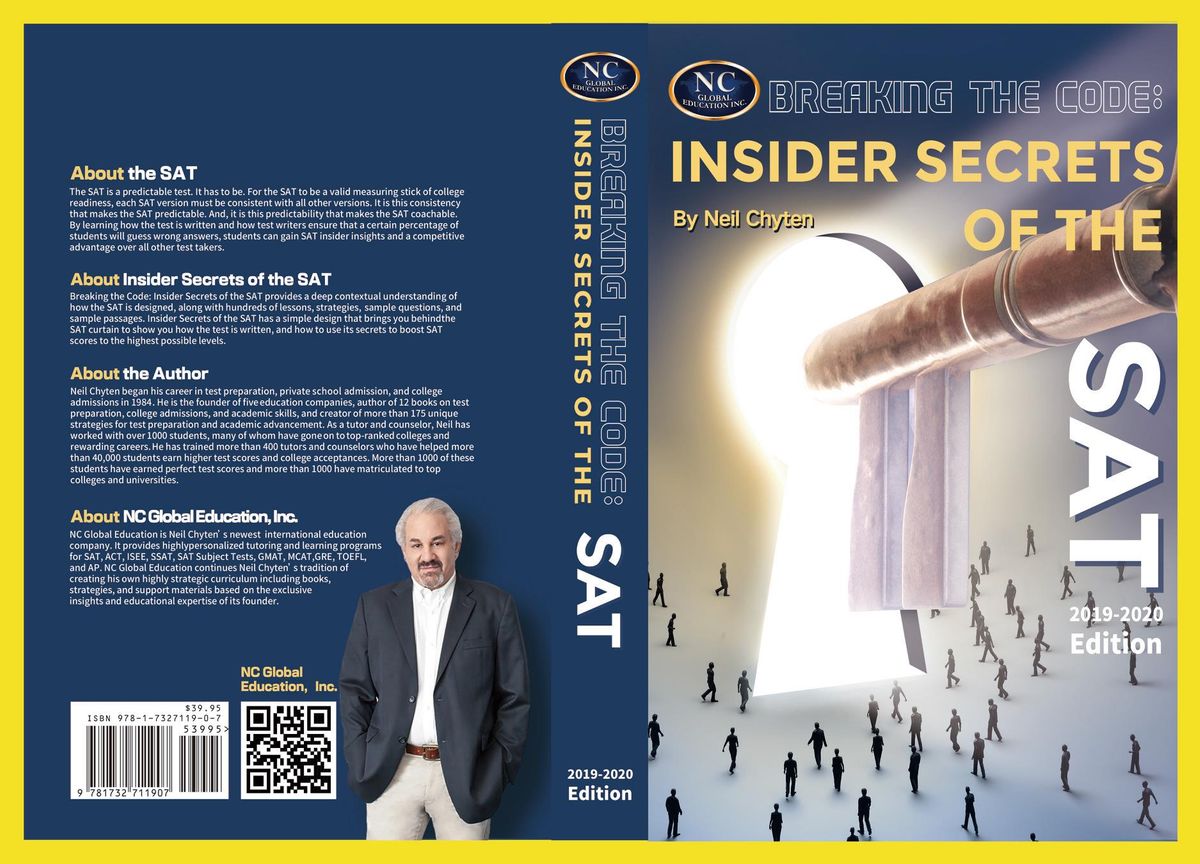When one considers how important test scores are in the admission process, one must address the question on multiple levels. First, from the student's perspective, it might be far less stressful not to have to worry about earning high scores on benchmark tests. I just don't agree with this argument as a reason to eliminate testing. After all, you could also say that it would be far less stressful not to worry about achieving high grades or taking high-level courses in order to show one’s academic strength. The fact is that high test scores are earned through hard work, and hard work is one legitimate measure of college readiness and the likelihood of success.
From a college's perspective, test scores are an important equalizer on one level, and a discriminator on another. What I mean is, it is hard to equate similar grades from different school systems across the country. Therefore, it is useful to have a relatively objective measure of a student’s ability. Test scores can equalize the playing field for students across the country and across the world. However, another argument says that using test scores to evaluate student readiness for college feeds into the meritocracy, because wealthier students can afford individualized test preparation programs that have proven to be extraordinarily helpful in raising scores. In my opinion, both of these arguments are correct.
Evaluating the importance of test scores on a practical level is quite different. Whether we like to admit it or not, the country’s most competitive colleges consider test scores to be among the most important characteristics of a student's college admission profile. It is unlikely that a student will be seriously considered for admission by a highly competitive college, such as those of the Ivy League, unless her test scores are in the top 5% nationally. In that way, tests such as ACT, SAT, SAT Subject Tests, and APs play the role of gatekeeper. They can help you gain access to highly ranked colleges, or they can keep you outside the gates. So, for those less interested in the philosophical debate over the value of test scores and more interested in the best ways to gain admission into elite colleges, there really is no question. High test scores are required.
Let's look at the growing trend of colleges becoming test-optional. There are two main reasons that colleges decide to drop test scores as a requirement. First, many colleges are having difficulty filling their classrooms. Therefore, it makes sense for them to ease up on the restrictions that prevent students from applying. Second, some colleges believe that requiring high test scores shuts out two important demographic groups, namely Black and Hispanic students, who statistically do not score as high on standardized tests. It is not the purpose of this article to evaluate the reasons why this is the case but rather to acknowledge why some school are now test optional. It is important to understand two things about test-optional. First, test-optional is not the same as test-prohibited. Even test-optional colleges will accept test scores if you send them. Second, very few highly competitive colleges are test-optional. The most notable exception is the University of Chicago. But I believe that even they would have a difficult time accepting a student who did not submit a test score instead of an identical student who submitted a high test score.
For highly competitive colleges that consider test scores to be a critically important measure of a student’s likelihood of success, it is simply a matter of making as few mistakes admission as possible. While high test scores may not be a measure of intelligence, they do succeed in measuring some degree of academic ability, including in reading comprehension, grammar, writing, and mathematics. Certainly, these tests are not perfect, but they do provide useful information to colleges anxious to fill their classrooms with capable students. Therefore, some form of standardized testing is likely to be around for the foreseeable future.
To conclude, I want to recognize the fact that test scores are just part of the picture. There is far more that goes into a student's candidacy than how well he performed on ACT, SAT, TOEFL, and the other tests. Grades remain the most important college admission characteristic. Also, the level of courses taken (AP, honors, or college prep, for example) is higher the list of important factors. A student's honors and awards, as well as extracurricular activities, demonstrated passion, and demonstrated interest are also strongly considered. But don't buy into the false argument that test scores are not as important as they once were if you are hoping to get into an elite-level college. They are every bit as important as they were 10, 20, and even 30 years ago. And whether it is expeditious for this argument or not, the truth is that higher test scores can be earned through diligent effort and by working with an experienced SAT tutor. For highly motivated students, higher test scores can also be earned by being extremely disciplined in following a self-devised plan of action.
About the author: Neil Chyten is the founder and CEO of Avalon Admission, Inc. He is also the creator and author of the Mastering the SAT, Mastering the ACT, Insider Secrets of the SAT, the College Counseling Collection, as well as several other education industry publications.

